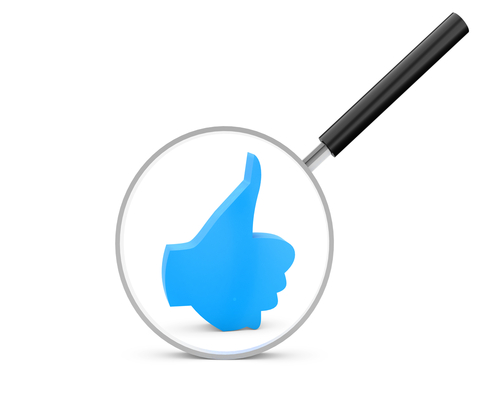Should you consider using Facebook as part of your background screening process? It may be beneficial because it could turn up potential problems and keep you from hiring someone who could be a problem later on. But it can also be a risk because Facebook pages are known to contain an abundance of personal information—and that personal information might be information that cannot be considered during the hiring process.
 |
Let’s take a look at both sides of this equation.
Benefits of Using Facebook for Background Checks
There are many potential benefits to using Facebook and other social media sites as one part of the background screening process. Here are some of the potential benefits:
- It could uncover behaviors that are inappropriate for the workplace, such as illegal activities.
- It can be a good place to discover whether the employee has a history of violence or any other relevant history that could affect the safety of other employees or customers. Employers have an obligation to ensure a safe workplace; background checks are a key part of that in many instances, and especially when dealing with vulnerable populations, such as children.
- Employers may be able to get a sense of whether the individual will be a good fit with the company culture.
- Employers can often see if the employee’s qualifications shown online match what is on the résumé or application.
- Facebook can also be a place to see the employee’s written communication skills in practice.
- It can be a place to discover if the potential employee has a propensity to bad-mouth employers or share company secrets.
- Facebook can also be a place where employers can see awards or involvement in community programs.
Risks of Using Facebook for Background Checks
The primary risk for employers using Facebook for background checks is that the employer may find information that cannot be used in the hiring process. Simply having this information—even if it is not acted on—can open up an employer for a claim of discrimination if the employer opts to not hire that individual. In other words, it could appear as though the protected information was the basis for the hiring decision. For example, Facebook might allow employers to see that a potential new hire is a member of a protected class by divulging:
- Religious affiliations
- Race or national origin
- Disability status
- Sexual orientation
- Age
- Gender
Any of this information could show an employer that an employee is a member of a group protected from discrimination under Title VII, the ADA, the ADEA, or other local laws.
This is the primary risk, but it’s not the only one. Facebook could also end up providing information about the employee or the employee’s family medical history. First, this could mean the employer has genetic information, which is protected under GINA. Next, this type of information can also show whether an employee has an undisclosed disability.
Yet another risk is the high potential for false or unverifiable information. For example, depending on a person’s privacy settings, others may be able to post content on their pages. This could mean there is inappropriate content on someone’s Facebook timeline that was not posted by the person in question.
Most of these risks are not unique to Facebook; an employer doing almost any online background screening runs into similar risks. But Facebook, in particular, has a high propensity for finding the types of information described above.
Facebook Background Screening: Yes or No?
With all of these risks, many employers completely steer clear of social media for background checks. However, it’s important to note that sometimes the benefits really do outweigh the risks. In those cases, employers just need to use extreme caution. One method often used is to utilize a third party to conduct the background check and have that party only report the relevant information, thus ensuring that the employer never has access to information that should not be used during the hiring decision.
Another consideration: if an employer does opt to use social media—Facebook or otherwise—during the background screening process, it needs to remember that this still falls under their obligations with the Fair Credit Reporting Act (FCRA). The FCRA requires that any collection of consumer information used to deny credit or a job needs to be disclosed. The employer must follow the FCRA rules and must be willing to disclose the information found and give the applicant the opportunity to dispute the information.
Be sure to consult an employment law attorney with any questions.
About Bridget Miller:
Bridget Miller is a business consultant with a specialized MBA in International Economics and Management, which provides a unique perspective on business challenges. She’s been working in the corporate world for over 15 years, with experience across multiple diverse departments including HR, sales, marketing, IT, commercial development, and training.
